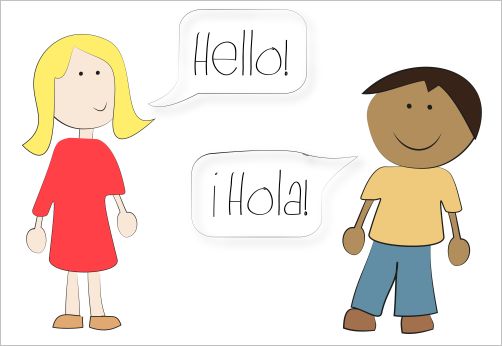Toddlers Speech
Toddlers speech is a funny thing. Those little people can be so sure that they are talking intelligibly, and yet—there is no way that anyone can figure out what they are trying to say. Sometimes mommy can. Mothers have a way of understand goobly-gook baby talk when no-one else can. Sometimes, though, even the mothers are stumped.
Will this combination of strange sounds ever morph into the cultured discussion that you hear in a third grade classroom? Is my child on track as far as speech goes? These are worries that many parents have. If the problem is just some malformed sounds and a small vocabulary, though, you probably don’t have much to be concerned over. This limited vocabulary and garbled speech is a normal part of growing up.

Milestones in Toddler Vocabulary
What you want to do is make sure of is that your child’s speech is making a steady progression—that he’s getting more and more intelligibly and acquiring a larger and larger vocabulary as the months go by. On my toddler vocabulary page I’ve provided a summary of the usual speech milestones, but don’t get overly worked up about them. You shouldn’t be comparing your child to any other child, or even with a list of ‘milestones’. Compare your child with himself, and if he’s learning as he grows, be proud.
Warning Signs in Toddlers Speech
If you aren’t supposed to be comparing your child with the neighbor’s Johnny, you shouldn’t stress about failed milestones, and there’s nothing wrong with garbled language, what should you worry about? Here’s a list of potential red flags or warning signs in your toddler's speech development: things that should make you want to talk to your pediatrician and possibly even schedule and appointment with a speech therapist. This list is geared toward 20-24 months; before that, there is such a variety in the ways toddlers use language that it is difficult to evaluate for potential issues, although a failure to talk at all—even babytalk—does mean trouble.

Have your child evaluated if…
• Doesn’t respond to sounds or calling in a normal, consistent, way
• Mispronounces her vowels regularly. For instance, saying ‘bod’ instead of bed’
• Skips the constants in a many words, and talks with mostly vowels. For instance, ‘e’ for bed.
• After using a new word once, won’t use it again for a while
• Hasn’t learn ‘bye-bye’ and doesn’t enjoy games like peek-a-book
• Doesn’t make much of an effort to communicate with you and let you know what she wants
• Has one ‘jack of all trades’ word that she uses to mean almost anything
• Doesn’t answer a question with a yes or a nod, but repeats the last word of the question to express yes: answering ‘shall we take a nap?’ with ‘nap!’
• Hasn’t learned how to fit words together, and says only single, isolated words
Just because you see these red flags in your child doesn’t mean you need to panic; it doesn’t mean your child is in any way retarded or ‘second best’. All it means is that an evaluation and perhaps early intervention or speech therapy might be helpful.
Encouraging Your Toddlers Speech at Home
Encourage your toddlers speech at home by talking to him in simple language—but not baby talk—as you spend time together during the day. Ask him questions and wait for his responses; then listen, even if what he is saying is scarcely intelligible. Read him books. Let him talk about the pictures in storybooks; and have back-and-forth conversations about what you see. Before you know it, your baby-conversation will have transformed into something with which the two of you can really share ideas, thoughts, and emotions!
Click here to return from Toddlers Speech to Toddler Development
New! Comments
Have your say about what you just read! Leave me a comment in the box below.